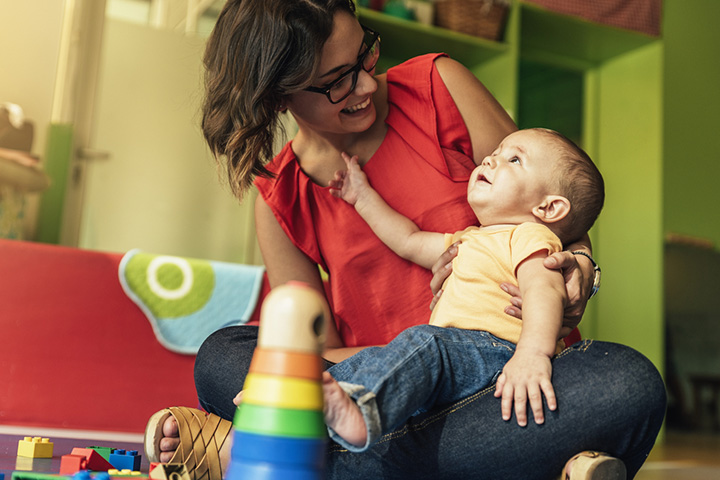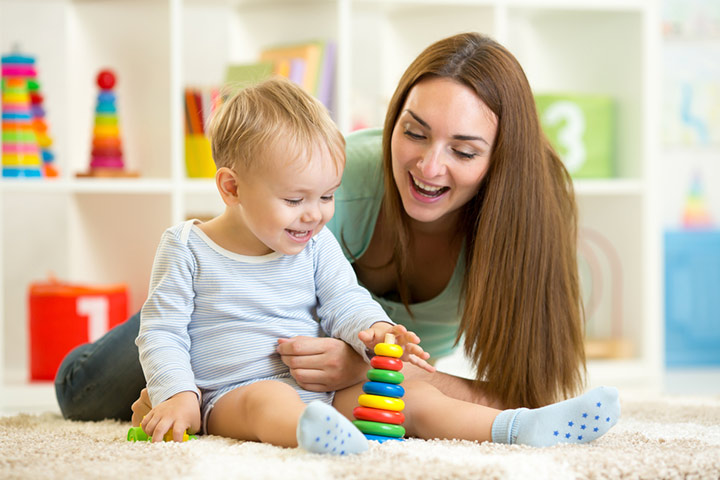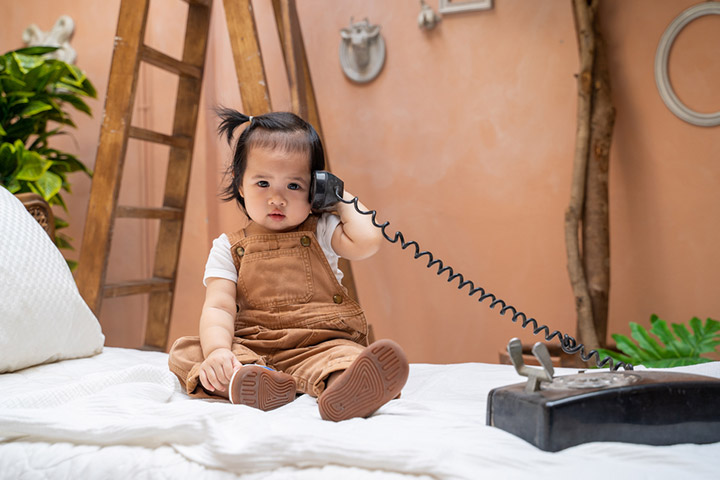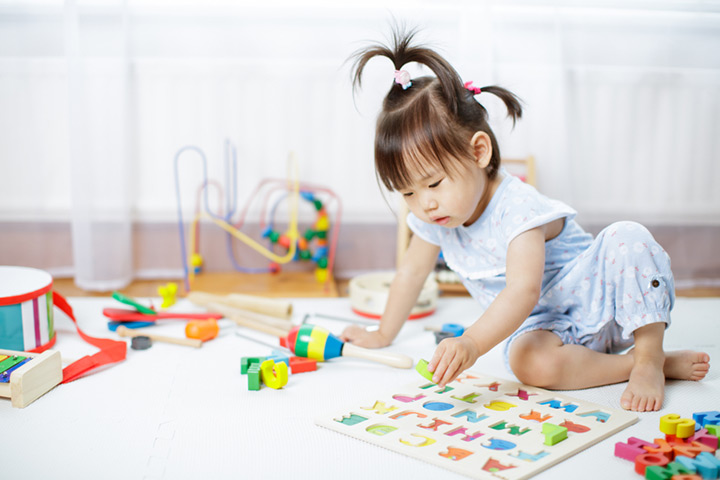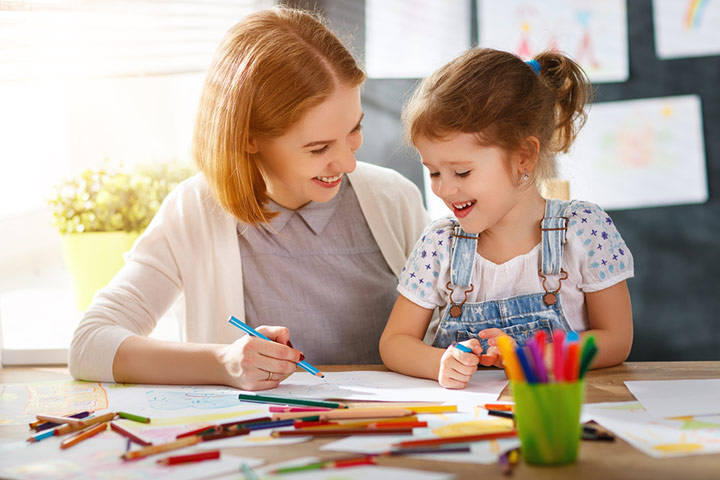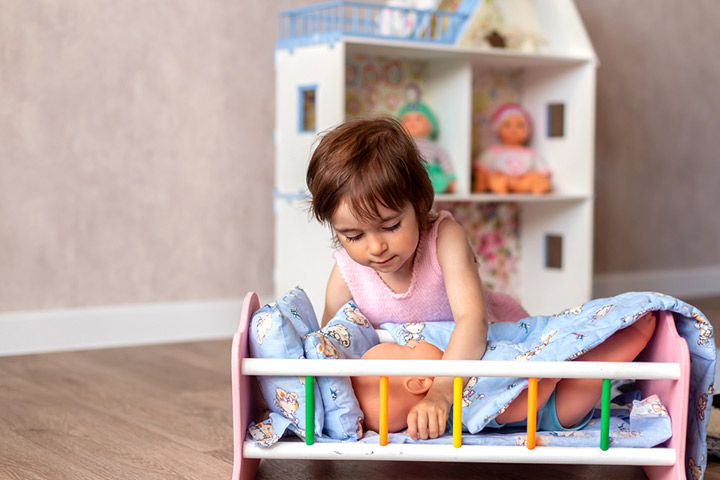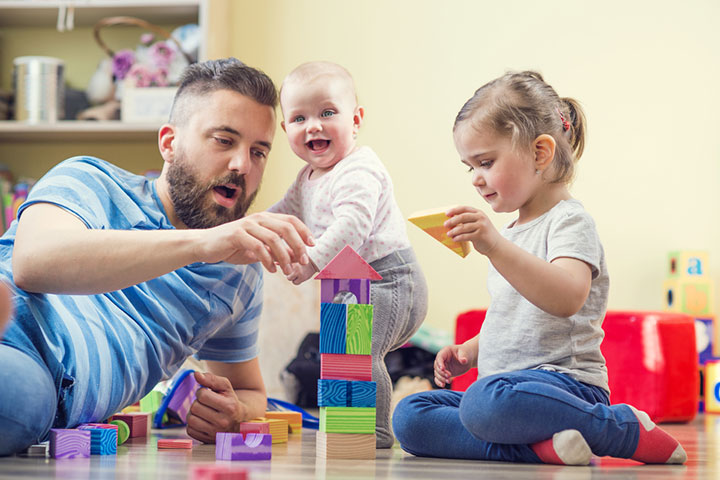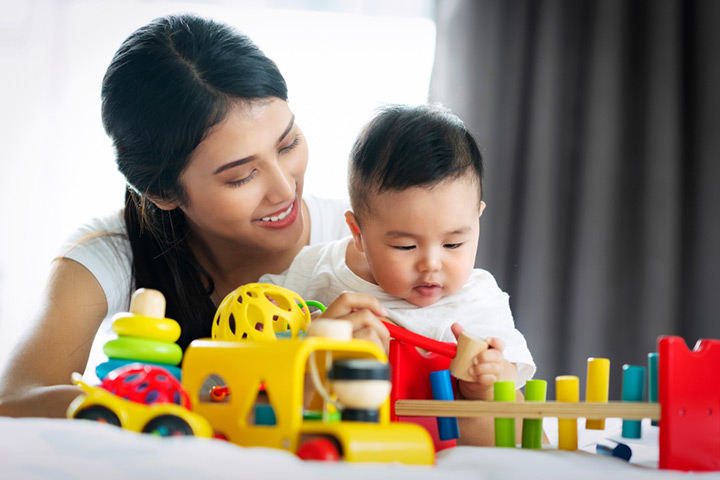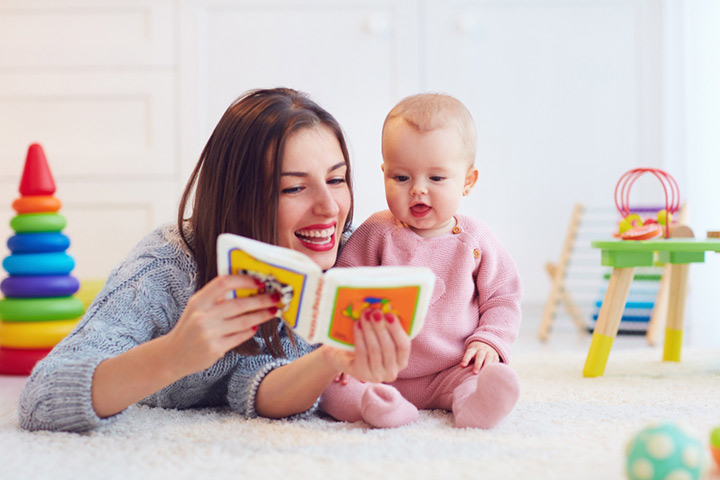
Humans are always learning from their environment, but the first five years of their lives are when they grasp most things (1). This is probably why parents try to inculcate healthy habits in their toddlers early, so they can carry on these habits for a lifetime. Toddler brains are always active and soak in everything around them like a sponge. So things you do and how you behave around them contribute to shaping the human they become later in life. Here are some expert tips for parents to help their children learn things easily and effectively. Read on to know them all.
1. If Your Infant Smiles At You, Try Changing The Pitch Of Your Voice
Keep smiling back at your child when they’re happy, so they know it’s a good thing to do and a pleasant interaction. To help your child learn various responses and speech patterns, you should change your voice’s speed, pitch, and volume while you baby talk.
2. Encourage Your Child To Reach Out For Safe Things
When your baby is between one and six months, you may begin to teach them to independently grab items like plastic cups. Aside from this, you may hold an object next to your child’s eyes and gently move the object across their field of vision so that the infant tracks it with their eyes. It’s a smart idea because a baby’s field of vision widens by the third week of their life (2).
3. Give Your Baby Time To Respond When You Ask Them A Question
You can begin to communicate with your infant after six to nine months of age. Give them a chance to come up with an answer, and don’t demand it immediately. Give an answer yourself if no one else does so they’ll remember how to answer it.
4. Invest In Simple Story Books Or Puzzles
You may encourage your child’s interest in the environment around them by purchasing basic books or toys that include various activities according to the age group they fall in. It can be stacking toys or puzzles that encourage in strengthening their memory and motor skills.
5. Keep Away From Honey
Honey has amazing health benefits, but it can be hazardous if given to your child under six months. There are many cultures where there are customs that make newborns consume honey to make their voices as sweet as honey. However, newborns don’t have the enzymes to digest honey. Hence it can be fatal to them (3).
6. Reward Your Child For Their Hard Work
To ensure that your child has pleasant encounters with you, do not forget to compliment them on their work. On the other hand, negative words (e.g., “not good”) should be used sparingly to cultivate a healthy sense of self-esteem and confidence in children.
7. Teach Your Baby The Names Of Various Objects And Simple Movements, Such As Waving
Your child is naturally interested in the things around them, so don’t forget to say the name of things to them so they can recall them. Also, to help your kid understand the relationship between movement and words, teach them to wave “bye-bye.”
8. Determine Dolls Body Parts By Pointing At Them
Point out the doll’s features one at a time and identify each one so your kid will remember. Then have them look at you and call out the same features. Slowly, the infant will be able to remember the parts of their body this way.
9. Allow Them To Put Items In And Take Things Out Of A Container On Their Own
Keep an eye out for the growth of a kid’s eye-hand coordination abilities throughout the first year of their life. By allowing your child to put and remove items safely from containers, they acquire new skills. The same is true for your child’s ability to stack objects. So they might want to stack the cookies before eating them, and it’s no reason to scream at your child. Instead, simply replace the cookies with the stacking toys.
10. Make Quizzes By Incorporating Interactive Elements
Look at a picture with your child and ask them questions such as, “Where is the bird?” They’ll be able to point this out to you this way. As previously suggested, when your child does anything correctly, praise them and let them know you did a good job.
11. Teach Them To Count By Participating In Activities They Are Already Familiar With
You don’t have to wait until your child is in kindergarten or school to assist them in learning other things. At home, when they are 2 years old, encourage your children to count items with you and frequently ask them, “How many?” when it comes to counting. It can be pieces of a puzzle, toys, or even slices of an apple.
12. Ask Your Child Questions About The Books You’ve Both Read Together
Asking your toddler to recall specific aspects from a tale you just read will help improve their memory development. Make your child more inquisitive about the world by discussing the narrative. You can ask about their favorite parts or something about their favorite character that they would like to share. You can also reopen the books and try to find the moral they are taking with them.
Bringing up a child sure takes more work than you can imagine, but it is also very rewarding to see them grow into smart and gentle little humans. Be aware that parents and guardians have a lot of input in how they turn out to be. So, do you have any expert parenting tips that you would like to share? Let us know in the comments section!

